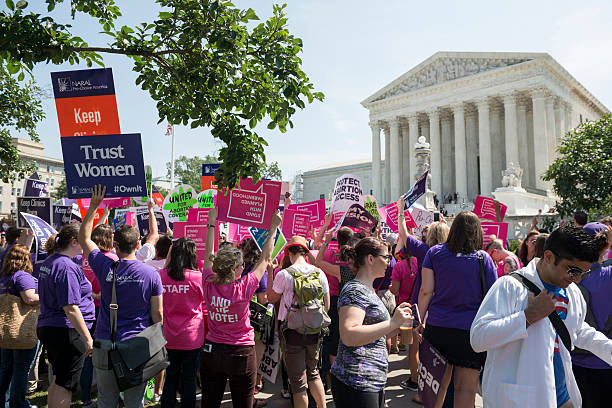Colonoscopy is done to diagnose or treat symptoms of the colon, including changes in bowel habits or constipation, rectal bleeding, or a positive fecal occult blood test (FOBT). In addition, if you have a family history of bowel cancer or have polyps, you also need to have a colonoscopy. If polyps or tumors are found during colonoscopy, polypectomy can be performed immediately or a small amount of tissue can be extracted for further testing.
Not only does a colonoscopy provide a better picture of the inside of the rectum compared to an X-ray scan (barium enema or CT scan), it also has the advantage of being able to perform a biopsy of the rectum at the same time as a colonoscopy, or perform a polypectomy.
What is a polypectomy?
Polypectomy is the removal of polyps by using a colonoscope. Polyps smaller than 5 mm were excised by thermal biopsy using an electrocautery (see Figure 2).
Larger polyps can be removed using an electrocautery snare and then removed (see Figure 3). The patient will not feel any pain during this procedure.
endoscopic mucosal resection
Endoscopic surgery refers to surgery performed through colonoscopy and is used in many colorectal cases.
However, the primary role of this procedure is to target large benign polyps in the colon that cannot be removed by conventional snare polypectomy. This procedure should not be used in cases where a biopsy has proven that the polyp contains cancer, nor should it be used in polyps that can be characterized as likely to have cancer.
Endoscopic mucosal resections include:
- inject the solution into the submucosa of the intestinal wall; and
- En bloc excision with a snare or site-by-site excision
Why perform a polypectomy?
Colorectal cancer is the second leading cause of cancer death in Australia. Because colon polyps can progress to early-stage cancers and then malignant cancers over time, early detection and removal of polyps when they are young can prevent them from turning into cancers.
Preparing for a colonoscopy
Dietary restrictions and clear fluids
Before a colonoscopy, the colon needs to be emptied. You should only drink clear liquids (no solid food) until 24 hours before your test. Clear liquids are those that can be seen through when placed in a glass. When the glass is placed in front of a piece of newspaper, it should be possible to read the text on the newspaper through the liquid. The liquid must not contain any particulate matter, so it should be possible to pour through a sieve without leaving anything behind. Clear liquids include clear soups (such as chicken or beef stock cubes in hot water), apple juice, lemonade, and black tea or coffee. Sports drinks (Gatorade®, Lucozade®, Gastrolyte®) replace the body’s lost water, salt, and sugar. It is best to drink at least 3 liters of clear fluids the day before the procedure. You need to pay attention to and replace the salt (such as chicken or beef stock) and sugar (such as apple juice) that your body loses.
bowel prep
You will need to take PicoPrep to cleanse your colon (see Figure 5). Commercially available PicoPrep® contains three bags of white powder in each box, which should be mixed with a glass of water before drinking. Those who have a colonoscopy in the morning should drink their bowel prep at 2, 4, and 6 pm the day before the exam. Those who have a colonoscopy in the afternoon should drink their bowel prep at 2 and 4 pm the day before and at 6 am on the day of the examination, respectively. Those who have a colonoscopy in the evening should take the bowel preparation at 6 pm the day before, 6 am and 8 am the day before.
When should I start fasting?
You need to start fasting six hours before your colonoscopy. If the colonoscopy is performed in the morning, fasting should begin in the middle of the night before; if it is in the afternoon, fasting should start at 7:00 am; if it is in the evening, it should start at 11:00 am fasting.
drug
If you are taking blood thinners such as aspirin (Dispro®, Astrix®,
Cartia®, Cardiprin®, Solprin®, Asasantin®), clopidogrel (Iscover® or Plavix®), warfarin (Coumadin® or Marevan®), or rivaroxaban (Xarelto®), you should explain this to the examining doctor and ask your doctor if you need to temporarily stop taking the medication before the colonoscopy. Depending on the situation, you may need to stop these drugs seven days before your colonoscopy to reduce the risk of bleeding after a polypectomy.
When should I arrive at the hospital?
You can call the hospital after 3:00 pm the day before your colonoscopy to check your test time. You will need to be at the hospital at least an hour before your test time. If the colonoscopy is in the morning, you will need to be at the hospital reception by 7 am. If the colonoscopy is at noon, you will need to arrive at the reception by noon. For colonoscopy in the evening, please arrive at reception at 4 pm.
Pre and post colonoscopy precautions
Before the colonoscopy, the nurse will bring you to the operating room. You will need to change clothes, take off your shirt and underwear, and put on a hospital gown and a hat. You will meet with your doctor and anesthetist before the exam to discuss any questions about the exam. The examination is performed after intravenous anesthesia and sedation. The test usually takes 30 to 60 minutes, depending on whether a biopsy or polypectomy is needed.
After the exam, you will need an hour to recover until the anesthesia wears off and most of the inflation gas is expelled. You may have abdominal cramps before passing gas, but this is very common. The hospital will arrange for you to recover and eat in the lounge and discuss the results with your surgeon. You must not drive home by yourself after a colonoscopy and must be accompanied by someone (friend or relative) to leave the hospital.
Colonoscopy biopsy results and retests
Please call 1300 165 666 one week after your colonoscopy to make an appointment for a follow-up appointment or biopsy results. If you had a polypectomy at your colonoscopy or have a family history of bowel cancer, you will be listed in our database and scheduled for another colonoscopy every three to five years. We will contact you to remind you when your next colonoscopy is due (usually in three to five years).
What are the risks of colonoscopy or polypectomy?
Colonoscopy and polypectomy are very safe, and although there are occasional complications, the risks are small. The risks of anesthesia are uncommon. There may be pain or swelling in the vein in the arm where the anesthetic was injected, which will gradually go away. Colon perforation, a hole in the large intestine, is a very rare but serious complication, occurring less than 0.2% of the time. The chance of perforation after polypectomy is 0.3-1.0%. If this happens, and the perforation is small, it may be recoverable with antibiotics. But in some cases, abdominal surgery is required to repair defects in the wall of the large intestine. Exams are done carefully to avoid this complication.
gastroscopy
Gastroscopy is a tube that is placed through the mouth through a smaller tube than a colonoscope to the esophagus, stomach, and small intestine (duodenum) for examination and biopsy, and to rule out celiac diseases such as gastritis, Helicobacter pylori infection, abdominal ulcers, cancer, Gastroesophageal reflux (acid reflux), non-tropical sprue (Coeliac disease), and lactose intolerance.
Gastroscopy can be performed at the same time as colonoscopy under the same anesthesia. Talk to your surgeon if you want to have a gastroscopy and a colonoscopy under the same anesthesia.
What are the charges for gastroscopy and colonoscopy?
Both gastroscopy and colonoscopy are funded by the government, or if you have health insurance, the insurance company will cover the cost, so you will not have to pay any additional fees to the colorectal surgeon





